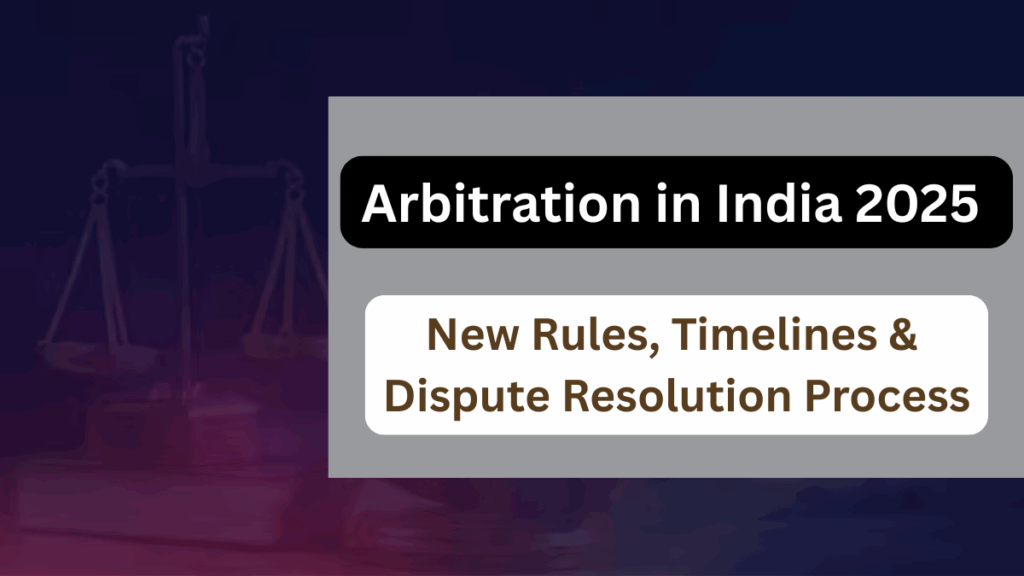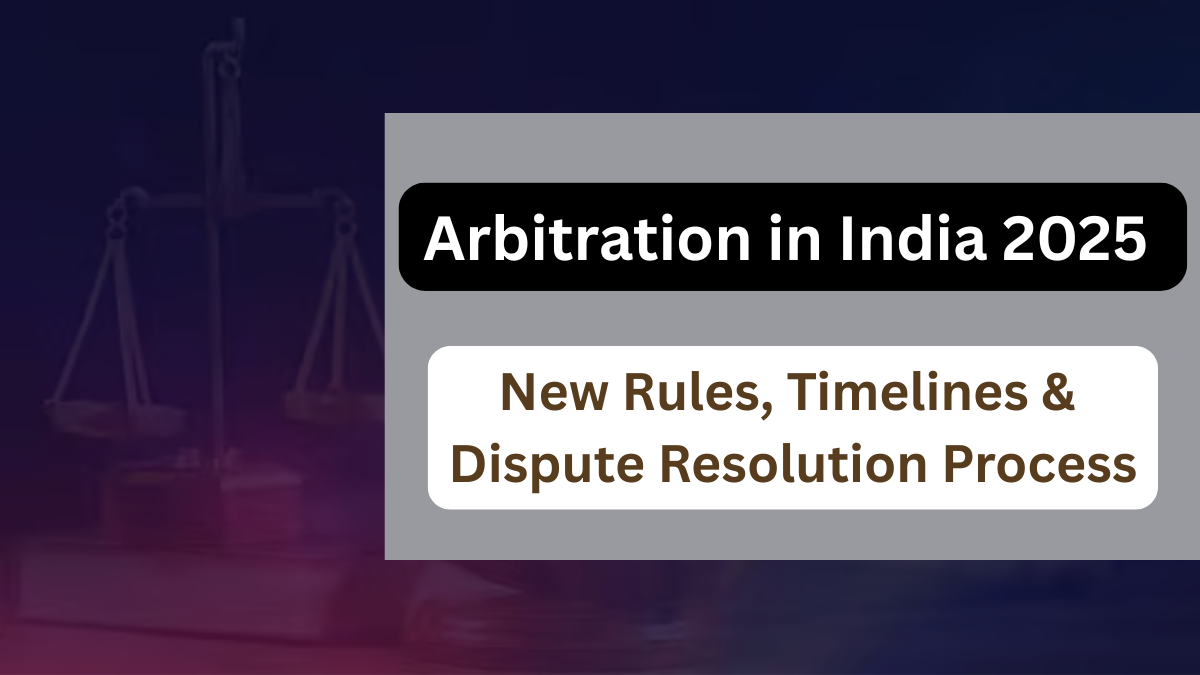In 2025, arbitration in India is undergoing a transformative shift, offering a more structured, transparent, and faster way to resolve disputes. With a stronger legal backing, digitization, and time-bound procedures, the new framework under the Arbitration Law India is designed to boost confidence in the dispute resolution process.

What is Arbitration?
Arbitration is a legal method of resolving conflicts outside the courtroom through a neutral third party known as an arbitrator.
Key Features of Arbitration
-
Less formal and quicker than litigation
-
Legally binding decision (called an arbitral award)
-
Offers confidentiality and flexibility
-
Used for both domestic and international disputes
What’s New in Arbitration Law India in 2025?
Several amendments in 2025 have brought major reforms to how arbitration is practiced, making the system more efficient and user-friendly.
Key Changes Implemented
| Change | Description |
|---|---|
| Time-Bound Hearings | Proceedings must conclude within 12 months of appointment of the arbitrator |
| Virtual Hearings | Digital proceedings are now the norm, with e-filing and video-based hearings |
| Mandatory Disclosure | Arbitrators must disclose past or present relationships with parties involved |
| Institutional Arbitration | Encouragement to opt for reputed arbitration institutions |
| Transparent Fee Structure | A revised cost framework ensures predictable and fair expenses |
Updated Timelines for Arbitration in 2025
The dispute resolution process is now governed by a streamlined timeline ensuring faster outcomes.
Standard Timeline Overview
| Stage | Timeframe |
|---|---|
| Appointment of Arbitrator | Within 30 days |
| Claim and Response Filing | Within 60 days |
| Hearing Completion | Within 6 months |
| Final Award Delivery | Within 12 months (extendable by 6 months) |
Types of Disputes Covered Under Arbitration
The updated Arbitration Law India applies to a broader range of commercial disputes.
Common Disputes Handled Through Arbitration
-
Real estate and construction issues
-
Contractual disputes between companies
-
Infrastructure and logistics disagreements
-
Financial and banking disputes
-
Intellectual property (in some cases)
Benefits of the 2025 Arbitration Framework
With the new reforms, arbitration is now a more attractive method for resolving disputes quickly and affordably.
Major Advantages
-
Timely resolution, minimizing business disruptions
-
Cost-effective compared to litigation
-
Legally binding and enforceable awards
-
Increased accessibility through online hearings
-
Greater confidence in impartiality and transparency
Challenges in Implementation
Despite the improvements, a few hurdles remain in practice.
Key Issues to Address
-
Limited awareness among small and medium enterprises
-
Uneven distribution of trained arbitrators
-
Need for standardizing institutional practices across India
FAQs
What makes arbitration different from litigation?
Arbitration is a private, quicker, and less formal alternative to court-based litigation, typically used for commercial disputes.
Are arbitral awards final and binding?
Yes, under the Arbitration Law India, arbitral awards are legally enforceable, similar to court judgments.
Can I challenge an arbitration award?
Yes, but only under specific conditions like fraud, misconduct by the arbitrator, or violation of public interest.
Can individuals use arbitration for personal disputes?
Yes, if both parties agree. Personal contracts like rent agreements or property settlements can be resolved through arbitration.
Final Thoughts
India’s 2025 arbitration reforms aim to build a faster and more transparent dispute resolution process. Whether you are a business or an individual, understanding the updates in Arbitration Law India will help you make informed decisions and avoid unnecessary legal hassles.
Click here to learn more
